Does CBD come out on drug tests?
min. reading
The group of people who regularly consume CBD is growing. They also include celebrities, famous athletes and professional drivers, i.e. people who are regularly subjected to drug tests. Many manufacturers emphasize the safety of CBD oils, but the fact is that in some cases consuming them can affect the result of a drug test. Do all CBD oils have this risk? What are ways to get rid of cannabinoids from the bloodstream and prepare for a narcotest? So is it safe to drive a car while consuming CBD oil? Answers to these and other questions can be found in the rest of the article.
Table of Contents
What is CBD?
The hemp plant contains more than 400 different compounds. Cannabinoids are one of the groups of active substances found in hemp, which is specific to this particular plant. Cannabidiol (CBD), which is one of the plant’s constituents, is a compound in the cannabinoid group and is abundantly found in the inflorescences – the upper part of the hemp plant. Unlike another popular ingredient in this group, tetrahydrocannabinol (THC), CBD does not exhibit consciousness-altering effects. CBD oils available in many stationary and online stores contain varying concentrations of cannabidiol. It is one of the best studied substances of the entire spectrum of compounds contained in the plant. CBD is known for its broad effects on the human body. It affects the body holistically, regulating important functions of the human body. Dietary supplements in the form of oils containing cannabidiol are used as a support for various health problems and a form of prevention of civilization diseases. It is worth remembering that it can be in its natural form, that is, extracted from the hemp plant, or in synthetic form.
How does CBD work on the body?
Cannabidiol exhibits many beneficial effects on the human body. Its effects are due to its influence on cannabinoid receptors, which are part of the endocannabinoid system (EKAN). This is an important biological system that regulates other systems and many important processes in the body. These include the sensation of pain, temperature, hunger and satiety, regulation of sleep, memory or mood. CBD, by interacting with the aforementioned receptors, is able to influence and regulate the functioning of various areas of the body. These are mainly G-protein-coupled receptors, or CB1, located in the brain, spinal cord and peripheral nervous system, and CB2, found in the immune system and leukocytes. CBD affects EKAN in an identical way to naturally occurring endocannabinoids in the body, which is why it is so effective. Among other things, scientific studies have confirmed the anti-inflammatory, analgesic, relaxant or anticonvulsant potential of CBD-containing extracts. However, scientists still don’t know everything about CBD’s effects on the human body, which is why research into cannabidiol’s effects is still ongoing.
CBD does not intoxicate, but affects the endocannabinoid system
The mechanism of action of cannabidiol known so far is based on its stimulation of the endocannabinoid system for greater production of neurotransmitters, hormones, enzymes, stabilizing neurohormonal and neuroimmune communication. Since the substance affects the nervous system, according to the scientific definition, it has a psychoactive effect, just like coffee or chocolate. Psychoactive substances are chemical agents that affect the functioning of the central nervous system. They are often confused with psychotropic substances, which alter our state of consciousness, perception of the world, perception and functioning of the senses. However, the psychoactive effect of caffeine or cannabidiol does not mean intoxication, but is related to the effect on our mood, mental efficiency and many other aspects. It is often possible to encounter information that CBD is not psychoactive – it turns out that this is not true. On the other hand, the fact is that it does not produce any psychotropic effects. Instead, cannabidiol can cause a change in concentration, have a calming effect or on some people a stimulant. These properties qualify CBD as a psychoactive substance, which does not mean that it is harmful or addictive.
What is the permissible THC content of CBD oil?
In Poland, as in other EU countries, it is allowed to grow and process fibrous hemp as long as it meets the requirements for the content of the psychedelic substance THC. According to Polish law, hemp farmers and entrepreneurs are not allowed to market raw hemp material whose THC content exceeds 0.3%. The permissible THC content in CBD oil can therefore be 0.1, 0.2 or a maximum of 0.3%. Thus, any hemp product with CBD, such as a beverage, face cream or CBD extract, should have a maximum tetrahydrocannabinol content of less than 0.3%. This is a legal requirement, and its enforcement is a separate matter. Polish entrepreneurs are not obliged to test samples of their products for THC every time, and hemp can exceed this level. Especially when we’re talking about outdoor cultivation and plants that sway in the wind – that’s when hemp produces more cannabinoids in response to stress. So products with full-spectrum hemp extract – that is, containing various compounds: terpenes, phenols and cannabinoids – can have more THC than allowed. This is especially true for CBD oils, whose manufacturers do not undergo detailed testing to verify the levels of various cannabinoids in their products.
Buy CBD oils only from a verified seller
The presence of THC in some hemp products is one of the reasons you can fail drug tests when using CBD oils. These include only full-spectrum extracts, meaning they contain the various compounds in hemp, including THC. This is not unusual, as tetrahydrocannabinol is found in CBD oils in trace amounts of less than 0.3%. However, it happens that this threshold is exceeded, which can expose the oil user to a positive result for THC in the drug. That’s why it’s important to choose products only from trusted manufacturers that offer cannabinoid composition analysis. When we purchase oil from an insecure source or from a company that does not present us with an up-to-date test for the presence of THC in the product, we should be extra cautious. For people who, for various reasons, should not consume even trace amounts of THC, it is advisable to go for broad spectrum oils – containing a similar amount of active substances as full spectrum, but without THC. So, when consuming oils with studies confirming their values, we can be sure that they do not have narcotic properties, nor do they have addictive effects. When used as intended, they also do not interfere with the driver’s psychomotor abilities.
THC vs. CBD – substances with different properties
Each of the cannabinoids contained in hemp has a slightly different chemical structure and function in the body. CBD and THC, as the compounds most abundantly available in hemp inflorescences, are actually quite different. THC is the main component of cannabis responsible for the “high” – that is, the sensation of intoxication and altered consciousness. Cannabidiol has no such effect. Although it has a psychoactive effect, it does not alter our perception and perception of reality. Studies even show that it exhibits antipsychotic effects and can alleviate intoxication caused by the effects of tetrahydrocannabinol. However, these are not all its properties. CBD interacts with the endocannabinoid system through receptors. It acts as a weak antagonist of CB1 receptors, and is also a negative allosteric modulator of these receptors. Compared to THC, the compound has a fairly low affinity for endocannabinoid receptors, meaning that it binds to them much harder. In addition to this, it has a very broad effect on the human body. So far, the compound’s anti-inflammatory, antioxidant, neuroprotective or analgesic potential has been proven. THC, on the other hand, also has many therapeutic properties that have been scientifically proven. It shows analgesic, antiemetic or anticancer effects. In structure, it resembles anandamide – one of the internally produced endocannabinoids that binds to CB1 and CB2 receptors. THC acts as a partial agonist primarily on CB1 receptors located in the nervous system. Its presence in the body causes stimulation of neurotransmitter secretion throughout the nervous system. There it stimulates the reward center to produce dopamine, the neurotransmitter responsible for feelings of pleasure and euphoria.
What are the differences between CBD oil and marijuana?
There are quite a few differences, first of all, you have to start with the effect on consciousness. CBD products, as long as they contain the legally permitted amount of THC, will not cause intoxication. As a result, they do not affect your ability to drive or do mental work. Possible side effects of CBD, especially with large doses, may include slight drowsiness, relaxation and a decrease in energy, or the opposite, agitation. It all depends on what state the person consuming CBD was in. Consuming marijuana, on the other hand, will be fraught with a consciousness-altering effect. After consuming marijuana, the perception and perception of the surrounding world changes. The level of focus on the present moment increases, sensory impressions intensify. Colors and sounds become distinct, feelings seem to be very intense. It is important to remember that the state under the influence of marijuana does not allow safe driving or intensive mental work. CBD extracts are preparations commonly available in various stores. They can be purchased in the form of oils, pastes or capsules and precisely portioned with the help of an attached pipette. Marijuana, on the other hand, is available in Polish pharmacies in dried form. Medical marijuana patients can also count on prescription drugs prepared by a pharmacist, for example, in the form of oils.
Can a drug test detect the presence of CBD?
Routine drug tests for marijuana are geared toward detecting tetrahydrocannabinol, the substance in cannabis that is responsible for altering consciousness. Cannabidiol is not psychotropic, so the effect of CBD on drug tests should not be significant, at least in theory. The presence of CBD in the body is not a factor in the outcome of a drug test, as the tests are designed to detect THC. However, it is important to note that by using CBD full spectrum oil we are at risk of a false positive drug test result in certain situations. This is due to the fact that when consuming full spectrum CBD extract, we also ingest trace amounts of THC, a compound that comes out on drug tests. It all depends on the amount of extract we take in, and more specifically on whether we are dealing with a product that exceeds the legal standards for the content of this substance in the product. This is because in some situations it can happen that using CBD oil will fail a drug test.
How long does CBD stay in the blood?
Any cannabinoid consumed orally is metabolized by the liver at some stage before it enters the bloodstream. Depending on how often the extract is consumed and how much cannabidiol is consumed, CBD can accumulate in the body and remain in the bloodstream. If consumed once, CBD will persist for about 2 days. With irregular consumption, it will be about 5 days, while regular intake over a long period of time keeps cannabidiol in the blood for up to 10 days. Although CBD metabolites may be present in the bloodstream for some time, they are not the ones that affect the outcome of a drug test. It is THC, or more precisely the metabolite THC-COOH that will give a positive drug test result. Typically, this substance can only be detected in the bloodstream when consuming THC-rich cannabis strains or extracts with concentrations greater than 0.3%. The metabolization of cannabinoids can vary considerably from person to person, depending, among other things, on individual predispositions such as metabolism and detoxification processes.
Are there ways to quickly remove CBD from the body?
There are several effective ways to remove CBD from the body quickly. First of all, how long CBD remains in the blood will depend on the body’s detoxification capabilities. Excess cannabidiol will be removed by the body with urine and sweat, so it’s important to increase your fluid intake and take care of physical activity. You can also use a sauna or take a hot bath. It’s also a good idea to support the body with a dietary supplement that supports the body’s cleansing of toxins and liver function – as excess CBD will be treated as a toxin. A diet rich in fiber, antioxidants, plenty of fruits and vegetables can also help. Eating fatty, processed food will delay this process. Note, however, that the presence of CBD in the body will not affect the result of the drug test, as it detects THC metabolites, not CBD. When you want to get rid of excess tetrahydrocannabinol from the body, you should proceed in a similar way as with CBD. In addition, you can enhance the flushing out of the substance with the use of vitamin C and cranberry juice, which increases the amount of urine excretion.
CBD oil and drug test – emergency situations
CBD oils from a verified source and used as intended are safe, as they do not interfere with psychomotor abilities or affect the result of a drug test. However, it can happen that the CBD oil you take regularly has a THC content higher than 0.3%, which may not necessarily be felt in the form of a change in consciousness after consumption. Such a situation can occur when we buy CBD oil from an unknown source or get such oil from a friend, prepared by a craft method. THC metabolites, which accumulate in adipose tissue, hair and other tissues, can give a positive drug test up to a dozen days after ingestion. They are present in urine and saliva for up to 30 days. You don’t have to be under the influence of the substance at all to have exceeded tetrahydrocannabinol limits. A drug test can give a positive result once the concentration of THC in a urine sample exceeds 50 nanograms per milliliter. Some very sensitive tests detect as low as 20 nanograms. However, there is no cause for concern if we consume CBD oil that contains a legal content of 0.3% THC. Unless we are consuming very large amounts, reaching up to 2,000 mg of CBD per day in the form of a full spectrum extract, we can rest assured.
What to do if a positive drug test result is wrong?
Drug tests have the ability to give an erroneous result. Also, tests for other drugs, such as amphetamines, can be false positives when a person takes cough or asthma medications ( such as Ventolin). Some substances in medications chemically resemble those present in drugs. Incorrect drug test results, unfortunately, have their own unpleasant consequences, so it is worth preparing in advance if you know that you will be subjected to such a test and discontinue any drugs or other substances that may affect the result. This also applies to narcotests that detect marijuana. So, if we consume CBD full spectrum extract, it’s a good idea to wean off it 2 weeks before the test to prevent the detection of THC metabolites. In case you get a positive test result, it’s worth asking for it to be repeated in the coming weeks, and to inform the body ordering the test that you are taking CBD oil, which may affect the result.
When are drug tests performed?
The most common reason relates to a routine police roadside check. When, during such an inspection, police officers believe there is suspicion of narcotic consumption, they have the right to conduct such a test during a stop. Typically, these are tests that detect THC from saliva or blood. In addition to traffic checks, professional athletes are most often tested for THC. Many sports federations have a zero-tolerance policy for any amount of THC in an athlete’s body. So for athletes, it’s not enough to buy full spectrum CBD oil from a reliable source, meaning one with less than 0.3% THC. This type of extract can also give a positive result, as we are then consuming trace amounts of tetrahydrocannabinol. A better solution would be to regularly consume broad spectrum oils. These are completely devoid of THC. Although the safety of CBD oils is really high, don’t underestimate the situation when you consume an extract not tested for THC. We can expose ourselves to a positive drug test, unpleasantness and a driver’s license arrest.
Drug test vs. CBD – summary
Although the use of cannabis extracts is safe and does not have an intoxicating effect, some CBD oils can give a false positive on a drug test. This is mainly the case when a full spectrum extract with an untested THC concentration is consumed. In such a product, the risk of exceeding the legal concentration of a psychotropic substance is much higher. People who consume tested CBD oils, containing less than 0.3% THC, do not have to worry about a positive narcotest result, as long as they do not consume very large amounts, exceeding 2,000 mg of full spectrum CBD. It is important to remember that CBD is a fully safe substance that is not addictive and does not give a positive result on the narcotest. It detects metabolites of THC, trace amounts of which can be found in some hemp oils. To be sure that our drug test detecting marijuana will be negative, it is advisable to wean off supplements with CBD 2 weeks before the test, or reach for a broad spectrum oil – completely devoid of THC.
Summary
CBD extracts are becoming increasingly popular. They are also consumed by celebrities, famous athletes or professional drivers. A number of users are subjected to narcotests for marijuana once in a while, the results of which may be influenced by regular use of CBD oil. Basically, narcotests detect intoxicating substances, or in the case of marijuana, THC. Although they do not detect CBD, consumption of some oils with cannabidiol can give a false-positive drug test result. This is because full spectrum CBD oil, which is made from hemp, has trace amounts of THC in its composition. Note that THC is further a controlled substance, the possession of which is illegal. Polish law regulates this issue in such a way that a maximum level of 0.3% THC is currently allowed in products based on raw fibrous hemp materials. However, it happens that oils have this value exceeded. Even if you don’t feel an intoxicating effect when consuming CBD, you may find that the oil you chose or the dried product you use contains more than 0.3% THC.This situation is especially true for oils from an unknown source or prepared by a friend, the so-called artisanal method. That’s why it’s important to buy oils from reliable manufacturers who constantly monitor the concentration of cannabinoids in their products by conducting laboratory tests. An example of another situation in which we run the risk of flunking a drug test is when we consume extremely large amounts of CBD full spectrum, reaching 2,000 mg per day. In any other case, consumption of CBD oil should not affect the result of the narcotest, as cannabidiol is not a substance detected on this type of test. With the upcoming drug test in mind, if we are concerned about the result, we can support the process of clearing cannabinoid metabolites from our bodies by improving detoxification functions, such as using detox-supporting herbs and drinking large amounts of vitamin C water.

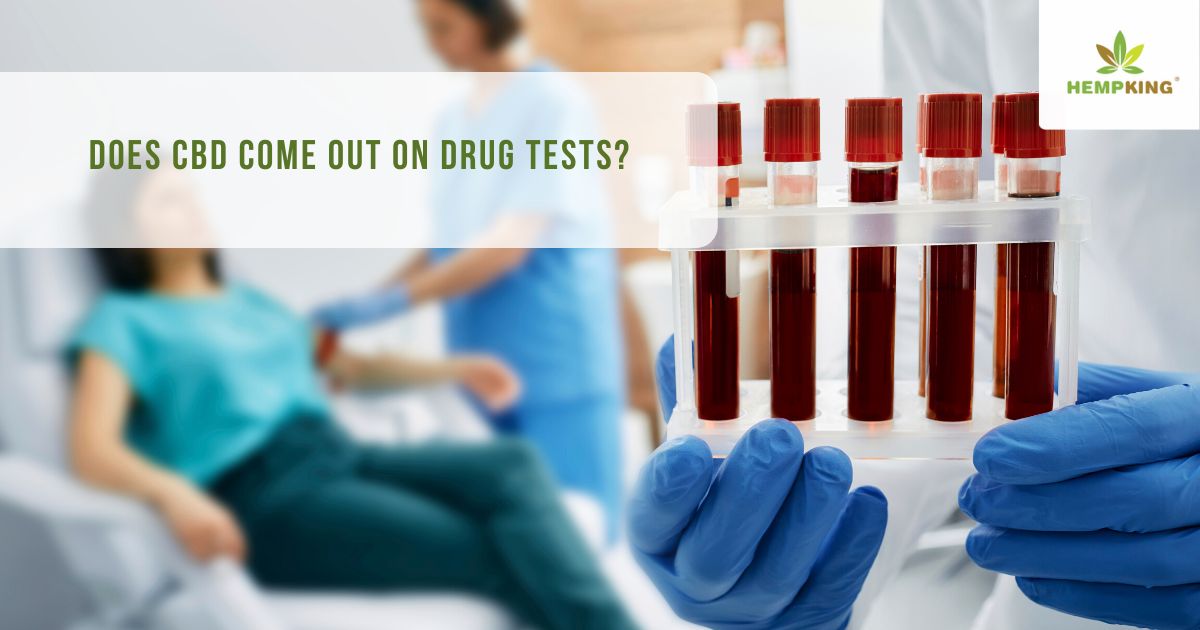
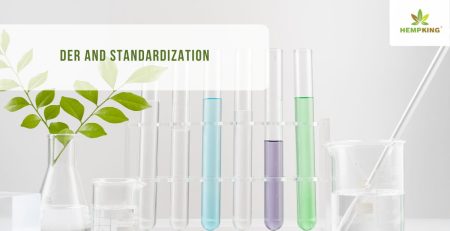
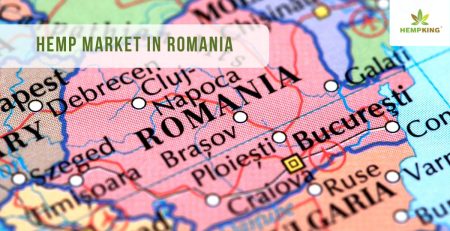
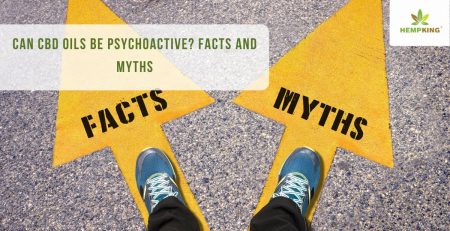
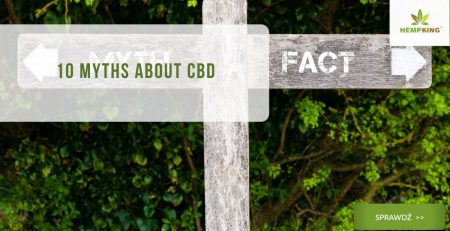
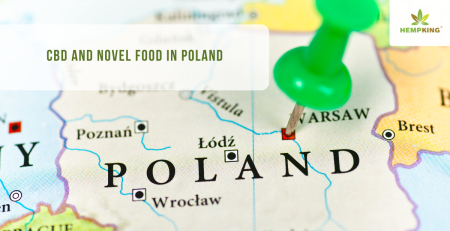
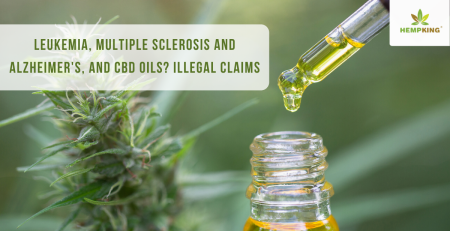
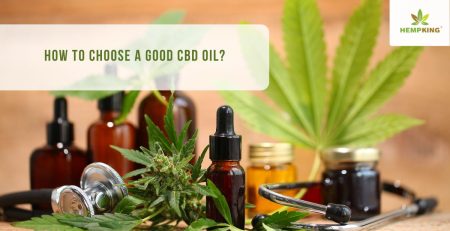
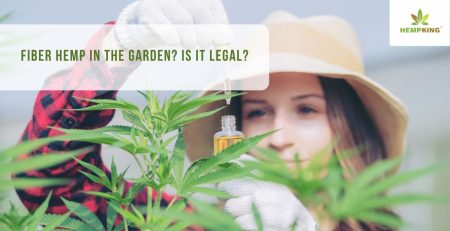

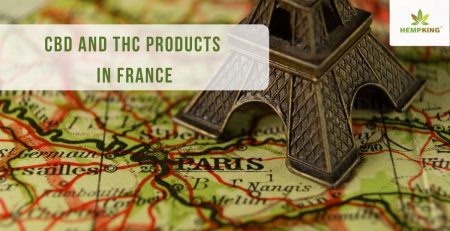
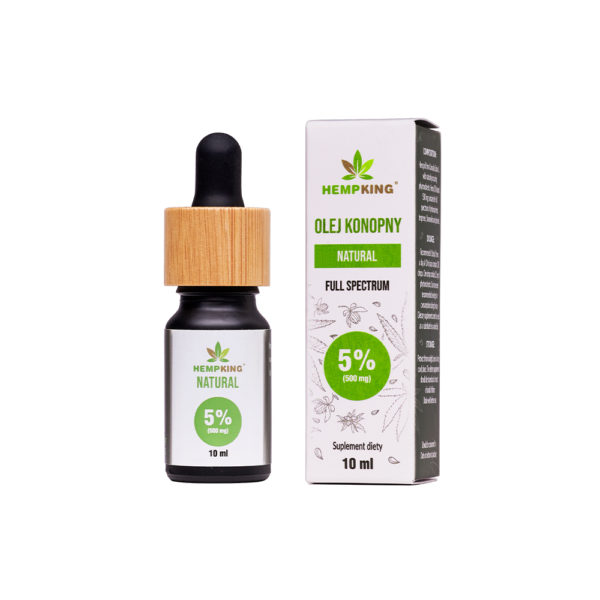
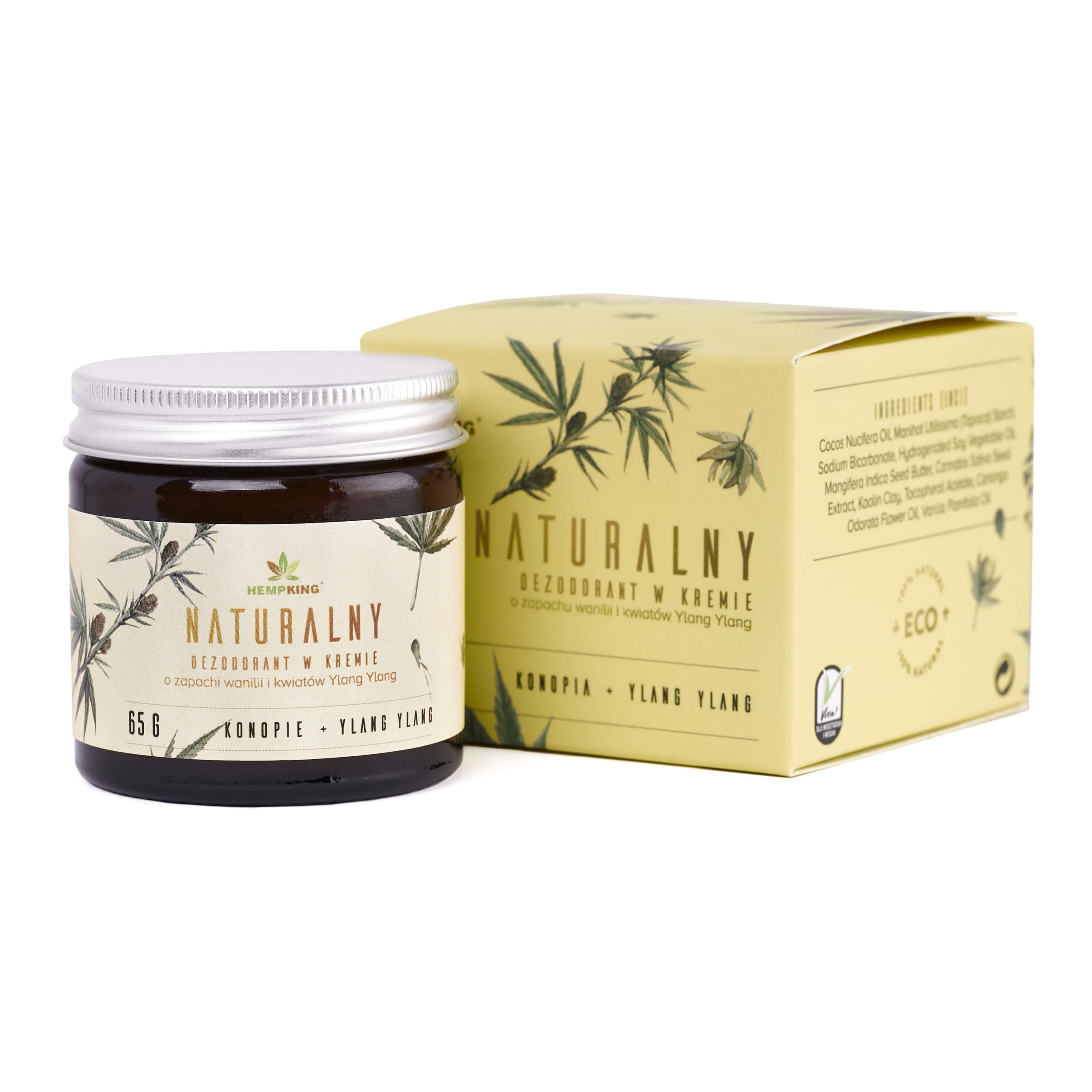
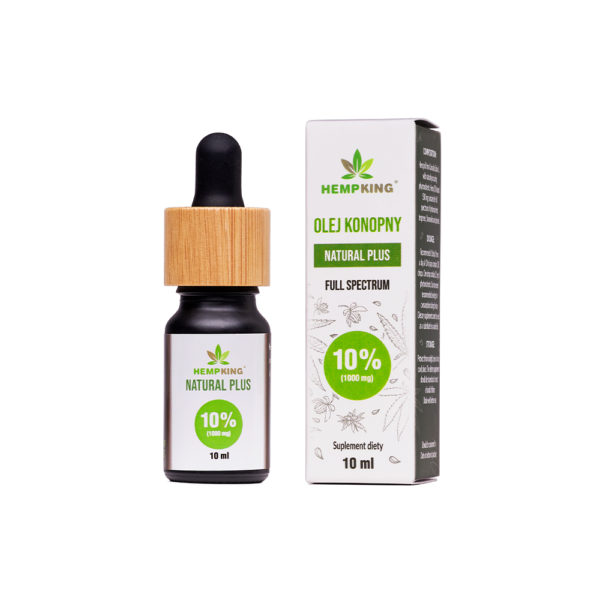
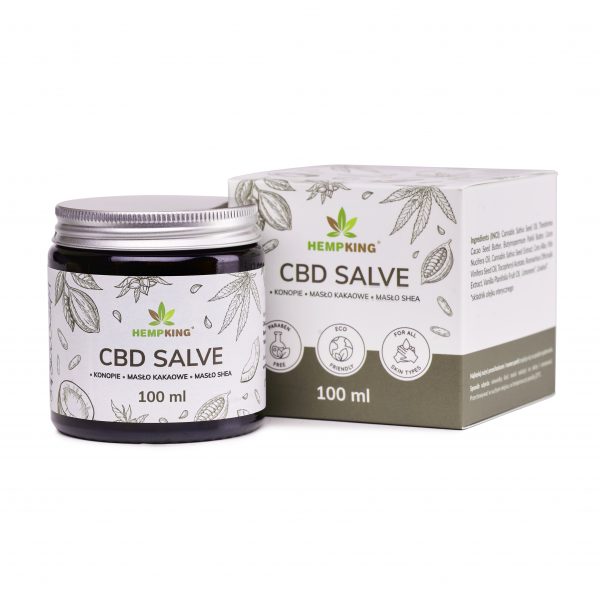
 Facebook
Facebook Instagram
Instagram

Leave a Reply